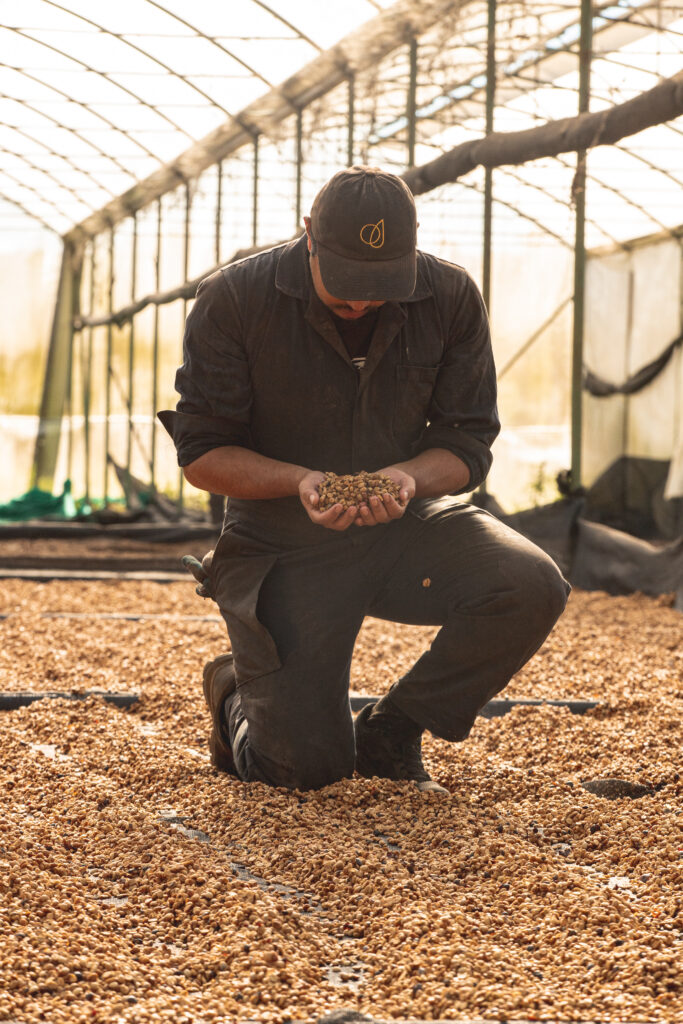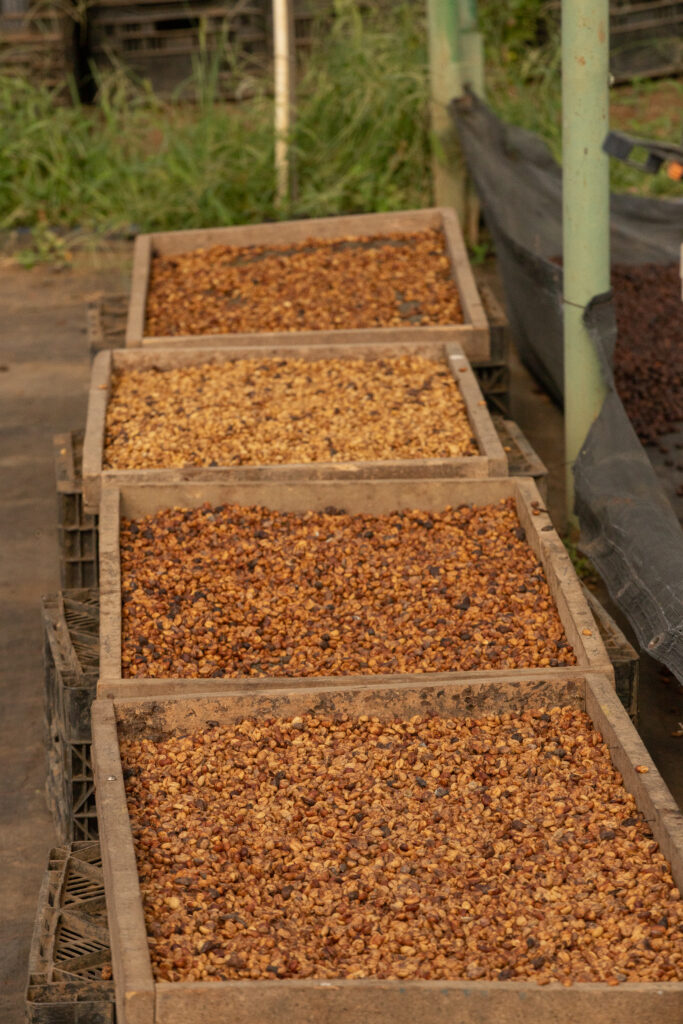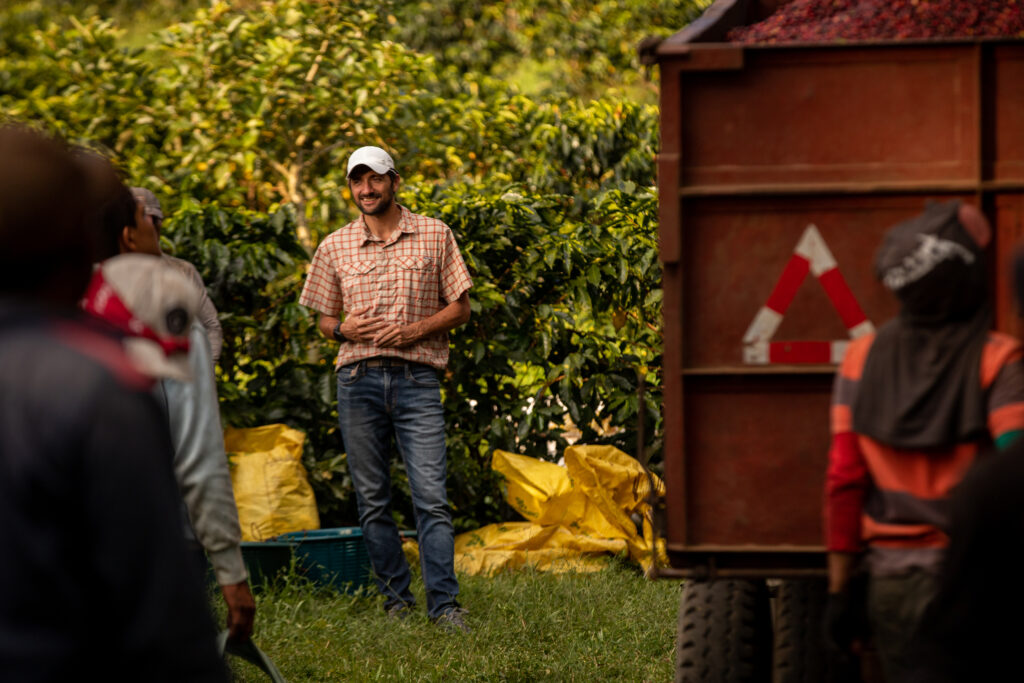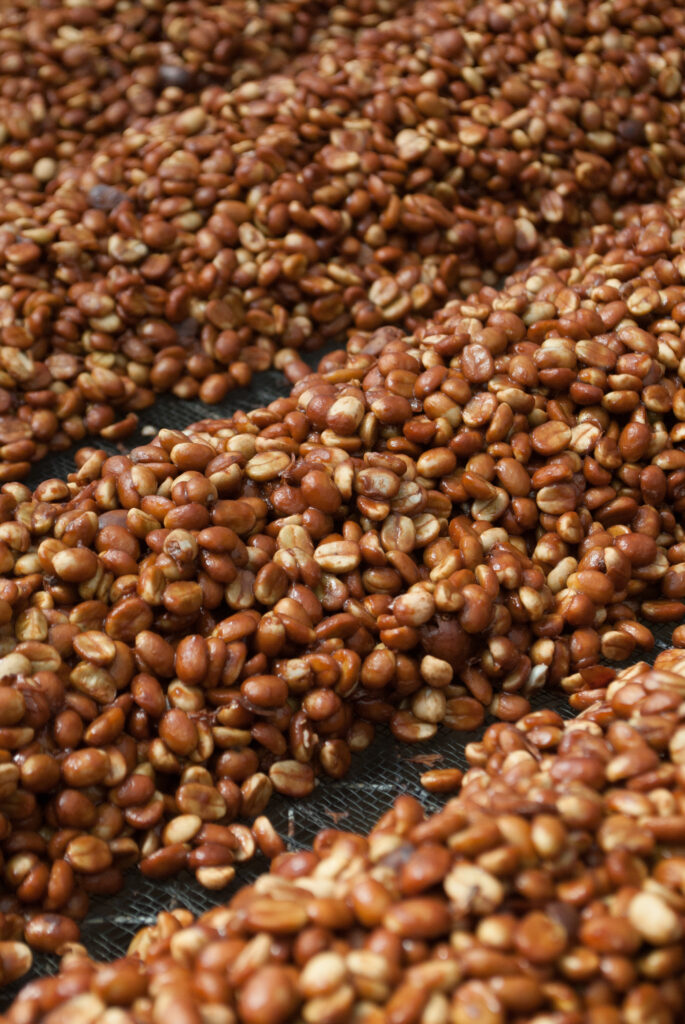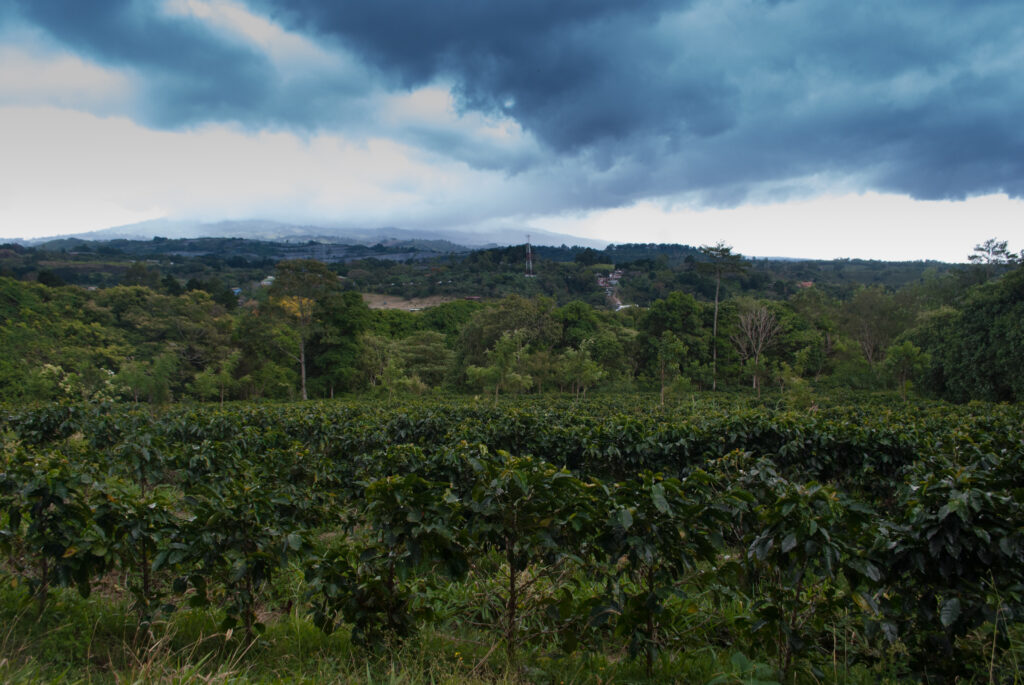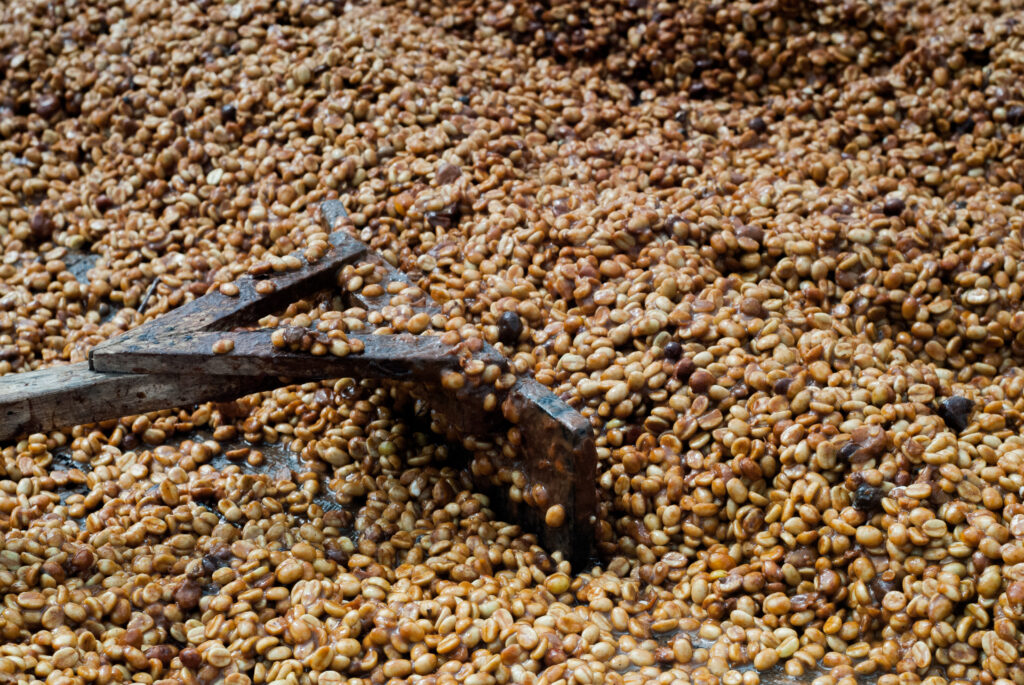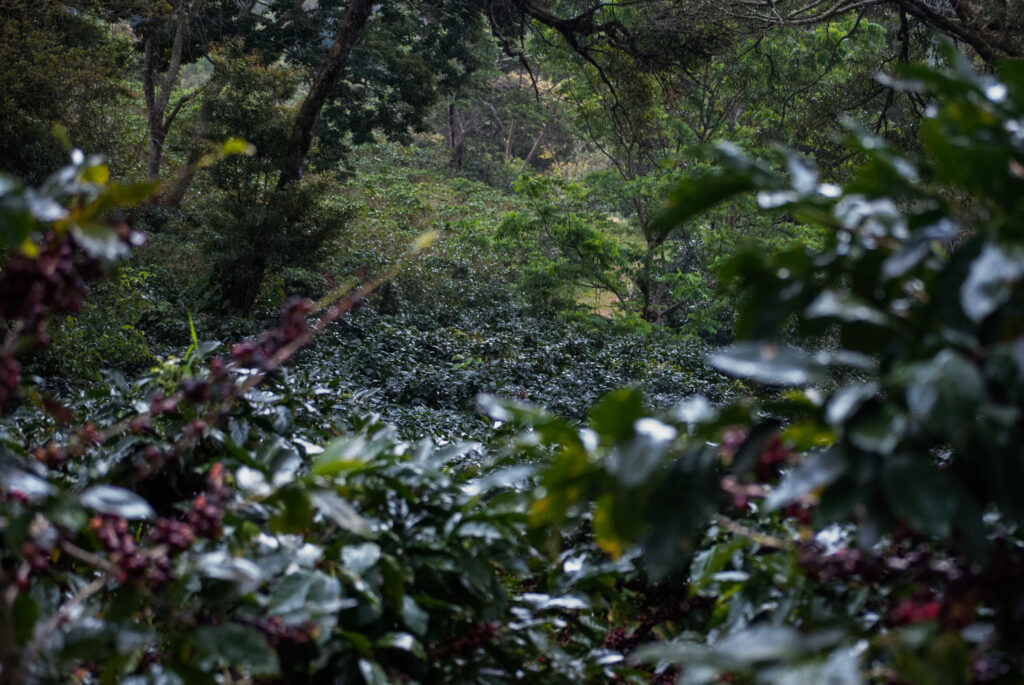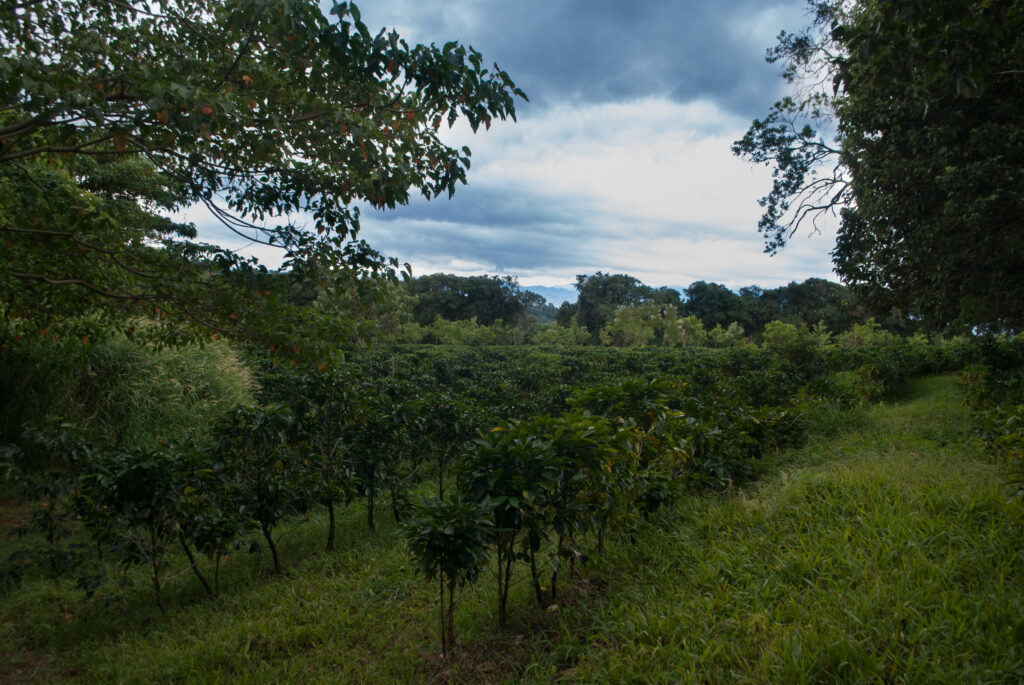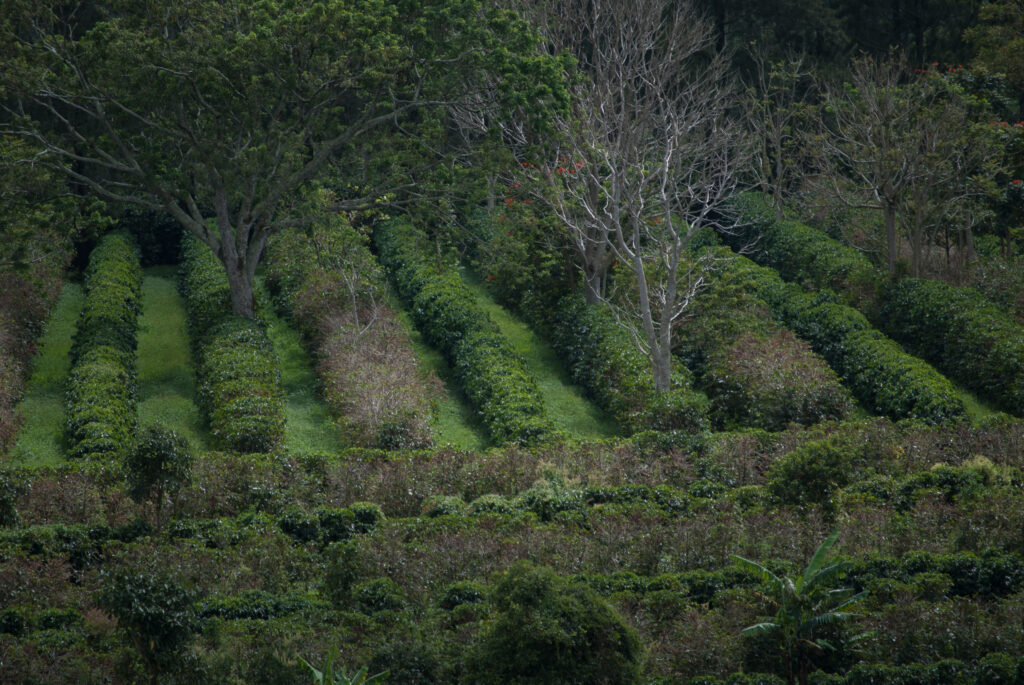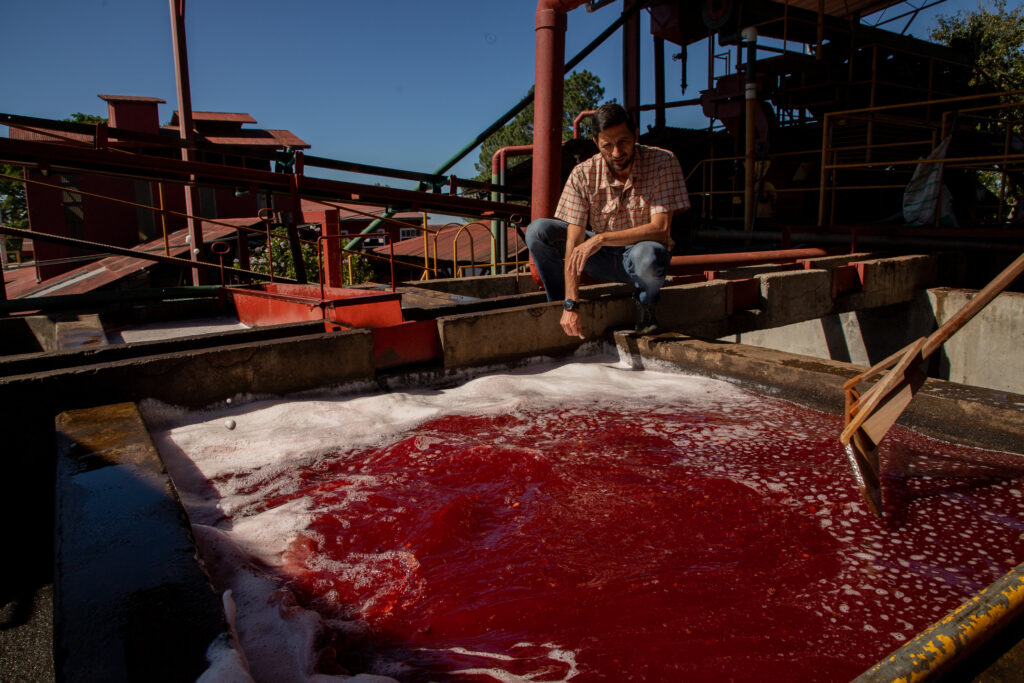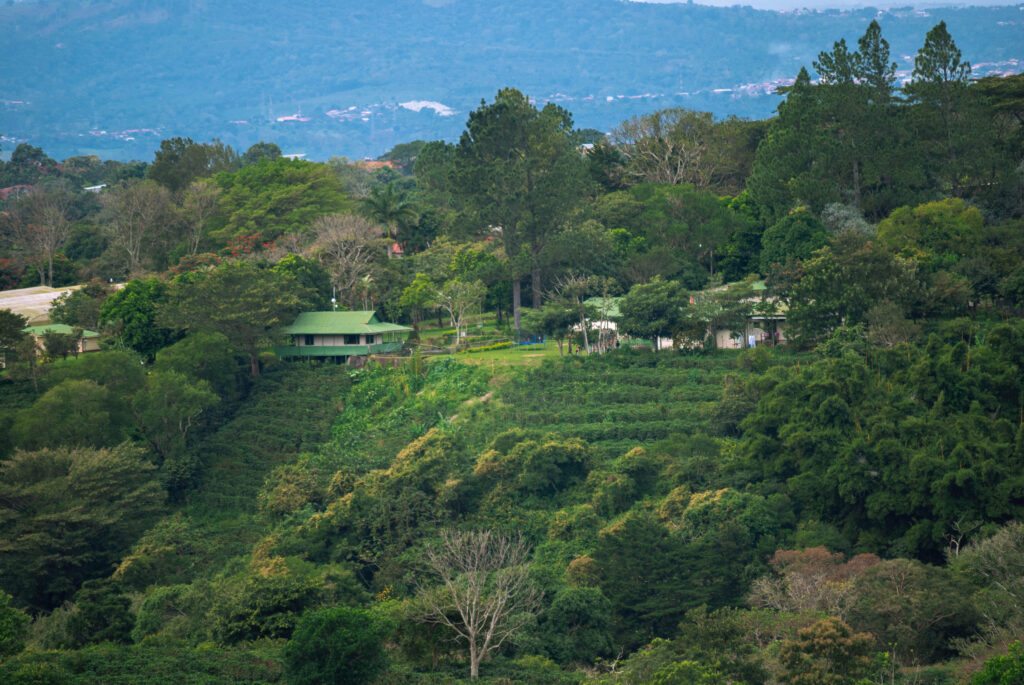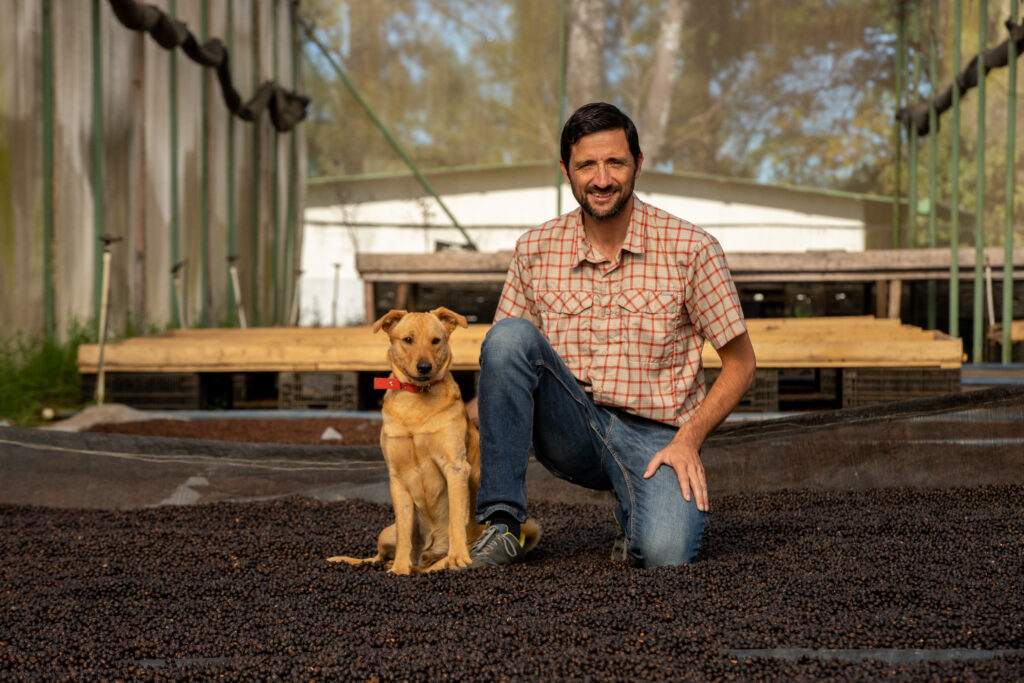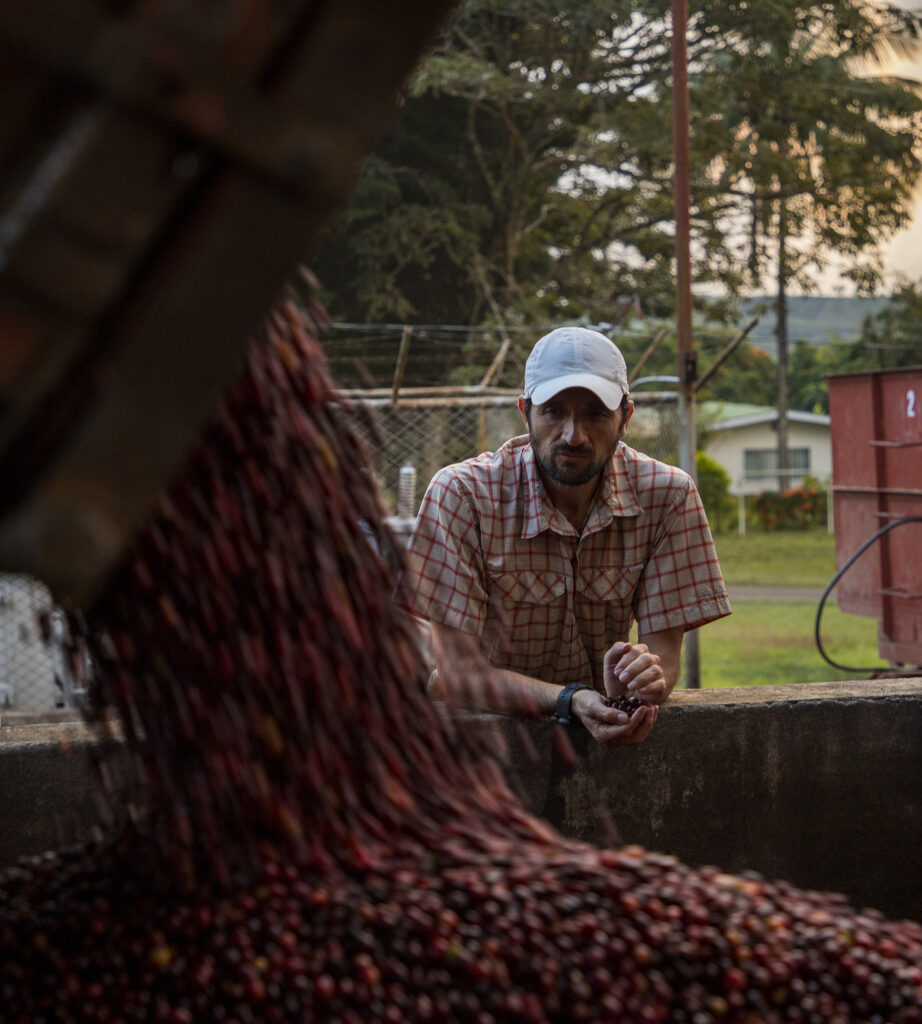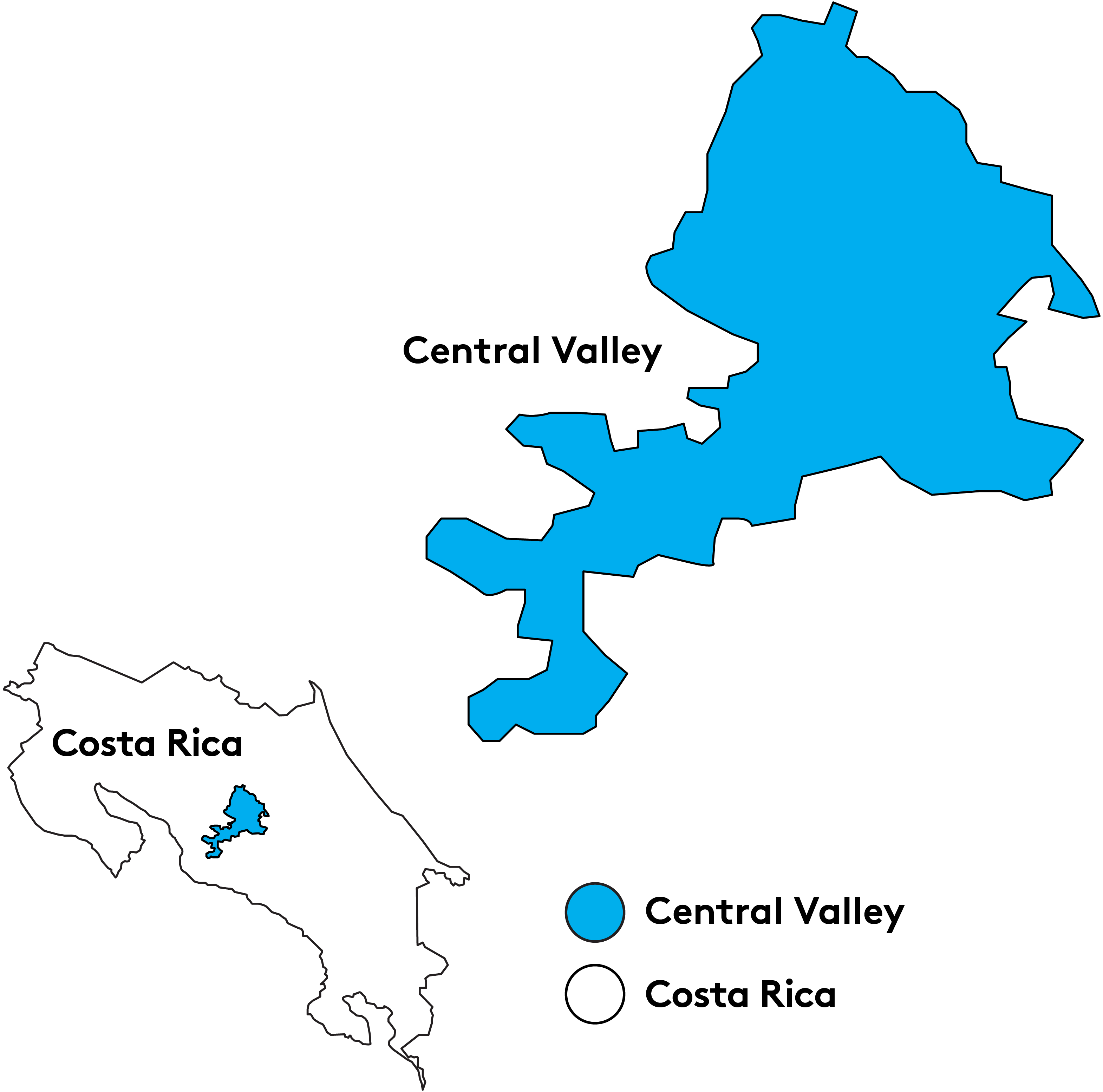Mariano Vargas Chinchilla is the CEO of Beneficiadora Santa Eduviges, a family business established in 1960, though the Vargas family has been producing coffee since 1941. Their estate, La Hilda, spans a total of 443 hectares, of which 300 hectares are dedicated to coffee cultivation. Nearly 100 hectares are natural reserve, and the rest is reserved for infrastructure such as workers’ housing, roads, the wet and dry mill, and the coffee nursery.
Initially, the farm produced sugar cane and cardamom before shifting its focus entirely to coffee under the Vargas family’s management. The original varieties grown on La Hilda were Caturra and Catuaí, but today the farm produces a wide range of varietals, including Sarchimor, Catimor, Marsellesa, Obatá, Caturra, Red and Yellow Catuaí, Anacafé 14, Laurina, and Geisha.
The estate’s wet mill is equipped with pulpers, rotative screens for classifying pulped coffee, demucilaging machines, guardiolas for drying, and a furnace. The dry mill features size classification screens, a densimetric table (Oliver machine), and forklifts for processing. La Hilda is in a valley at altitudes ranging from 1,200 to 1,500 meters above sea level. The farm is divided into micro-regions with varying levels of shade, which creates cooler microclimates (19°–21°C during the day) compared to the sun-exposed areas, where temperatures range from 26° to 31°C. Nighttime humidity reaches 98-99%, while daytime humidity averages 65%.
Over time, the estate has adopted sustainable agronomic practices, including the use of mountain microorganisms to recycle by-products from the wet mill and repurpose coffee husks as compost. These practices align with the principles of organic and regenerative agriculture, significantly reducing agrochemical usage and enhancing soil regeneration.
For this honey process (characterized by its red color), cherries are selectively harvested when they reach 27° Brix and show a deep garnet hue, indicating they are almost overripe. The whole cherries are then fermented without soaking for 48 hours in hermetically sealed bags, each holding 35 kg, at an average temperature of 23°C. After pulping, the coffee undergoes a second fermentation period of 48 hours in smaller hermetic bags containing 30 kg each, at the same temperature.
Drying occurs in two stages: first, the coffee is spread in raised beds for 7 days, at a density of 15 kg per square meter. Then, it is transferred to patios for an additional 10 days, laid over plastic sheets with a density of 10 kg per square meter. Throughout the drying process, the coffee is regularly monitored to ensure optimal drying and quality.
